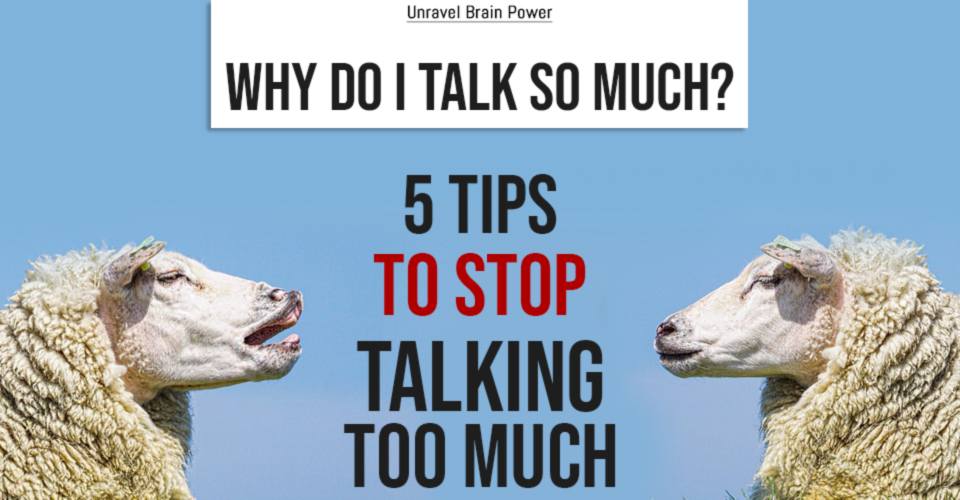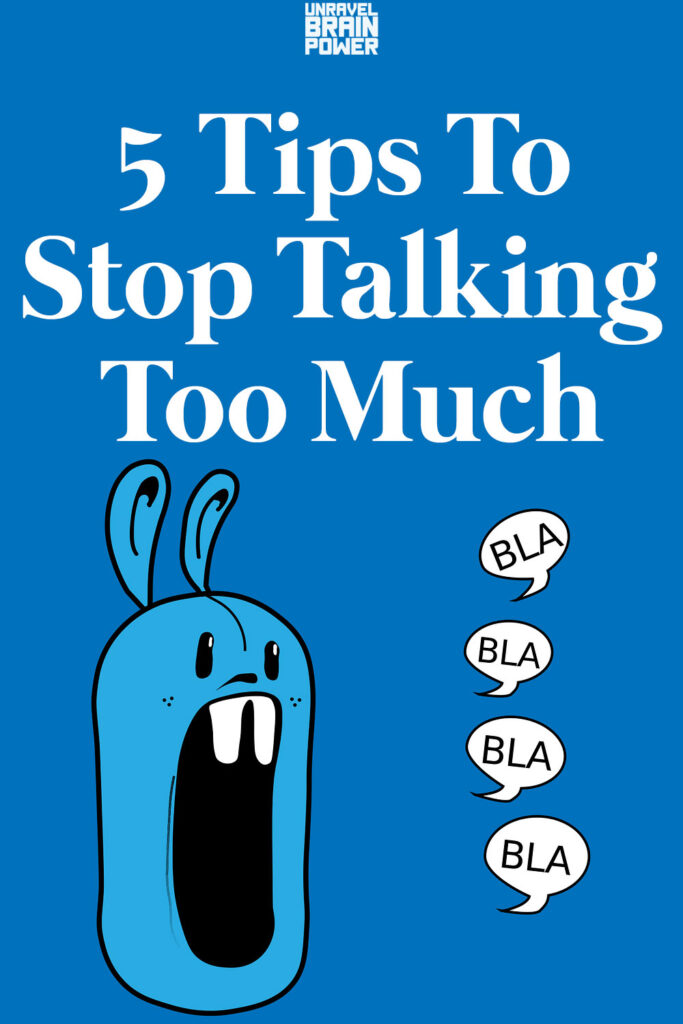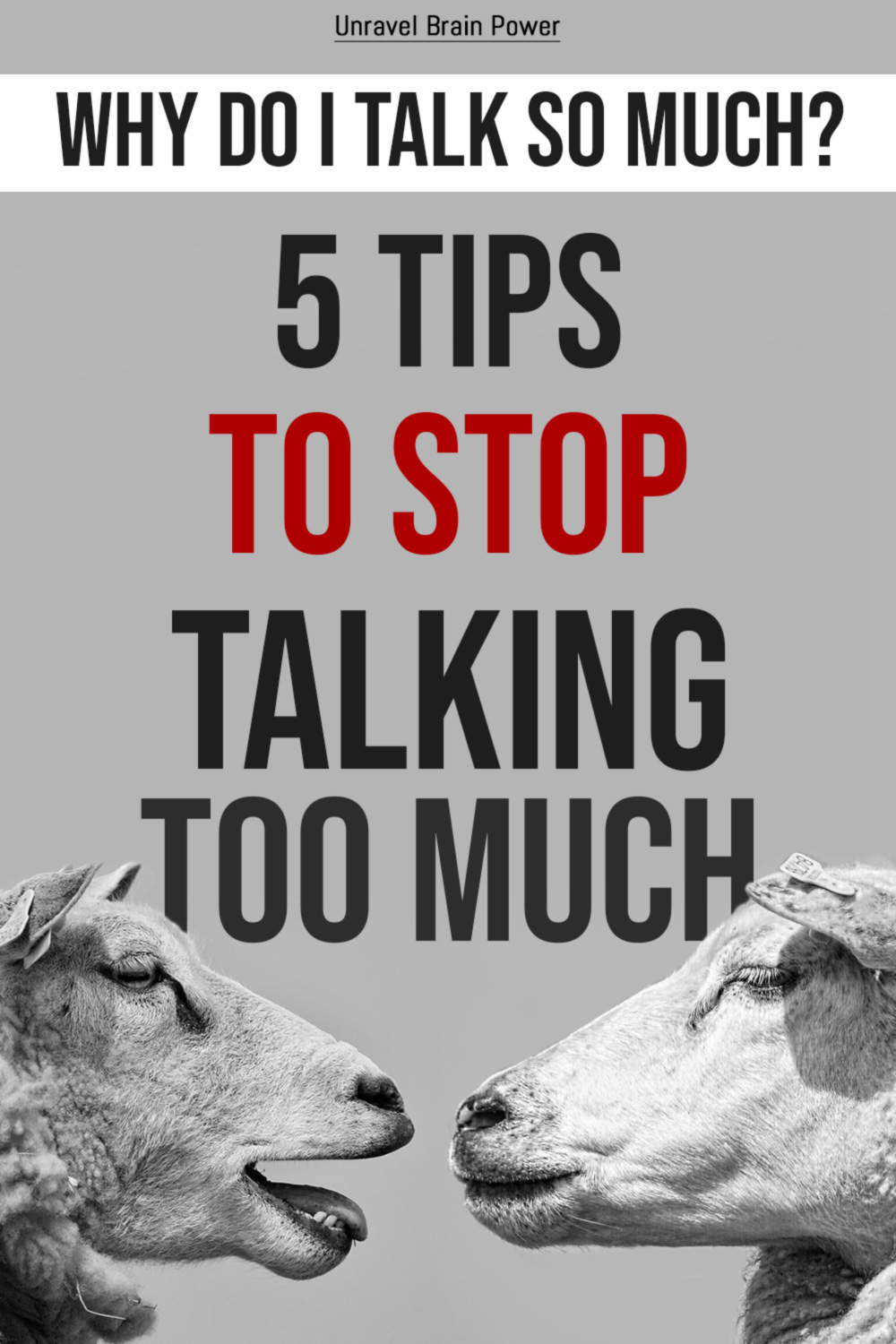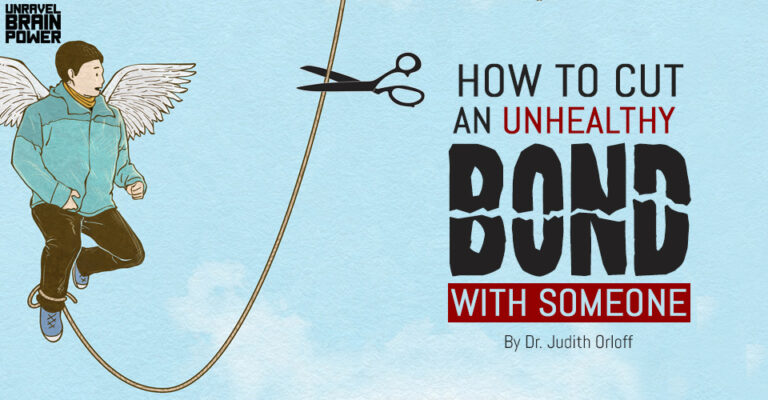
Do you talk a lot? There is absolutely nothing wrong with being a conversationalist, however, if you find yourself continually being affected by the fact that you talk way more than is necessary, and other people have pointed out the same fact to you time and again, it might just be beneficial for you and people in your life that you start working on yourself and change yourself for good.
And lately, it is something that has been posing a problem for you in social interactions, gatherings or affecting the interpersonal relationships and dynamics that you share with other people who are a part of your life in some way or the other – be it on a personal or a professional level. The strange part is, you don’t even know why you talk so much in the first place – the reasons seem weirdly unknown to you.
Why do I talk so much?
Before delving right away into the requisite steps to avoid excessive talking, it might be of help to know the underlying reasons behind talking too much. Once you become self-aware, i.e., enlightened about the root reasons behind why you do certain things, the next steps to correct yourself and eradicate the problems that might possibly arise become further easier.
Take note of the fact that all of the reasons mentioned below might not apply to you, but few will do, and if you relate with any of the points that are discussed next, you can take note of the fact how these habits are affecting your daily lifestyle, performance in the workplace and take steps to change this habit of yours and yourself for the better.
- You are unable to control your impulses.
- Talking to people helps you boost your own ego.
- You think that talking increases your likeability among other people.
- You are highly opinionated on things – and are eager to express your opinions.
- You enjoy conflict and drama.
- You like thinking out loud.
- You talk about your stance on things in order to prove yourself right.
- You tend to talk more in order to deal with your nervousness.
- You have a mental condition (examples include ADHD, bipolar disorder, etc. which makes you talk excessively.
What can you do in order to talk less and listen more?
Now, after knowing the root underlying reasons for talking too much (some of which you must have surely related to), you can finally go on and undertake the following steps to make yourself talk less and become a better listener wherever it demands in specific social situations.
So, how do stop talking too much? Start with two or three of these, soon enough, you will be able to successfully inculcate more of these habits in order to become a better conversationalist and overall enhance your communication skills greatly:
Here are top tips to stop talking too much
1. Start with controlling your sudden impulses:
One of the first things you must learn is how to deal with impulses and controlling sudden emotional urges or impulses. This step is a relatively simpler step, however, not quite easy to execute. This is because of the fact that things that we say out of impulse might just happen in a fraction of a second, and before we know what has happened, the damage is already done. We might even end up saying hurtful or offensive things out of impulse that we originally did not mean to.
Do not interrupt others or resist them from talking while in a conversation but condition yourself to focus and say things that are relevant when it is your turn to talk.
2. Stop trying to dominate the conversation:
Trying to come off as domineering can make people misunderstand or misinterpret you in several ways. There can be people who are conversational narcissists, who make the entire conversation revolve solely around themselves or their own interests. If they find a topic not interesting enough, they might simply cut off the conversation and change the topic altogether, something that is more intriguing for them. These selfish ways of conversing must be avoided at all costs because nothing comes out of such a useless conversation.
3. Ask questions whenever necessary:
It is important to fulfill your curiosity, especially if you find yourself not having enough knowledge to comment on a specific topic that happens to be the point of conversation, you can ask the other person(s) in the conversation questions that might come up in your mind. This will enable them to take their stance more strongly and express their viewpoint. Your understanding of the topic will also get better through this.
4. Try to focus more on listening:
This point is associated with the previous point. That is, shifting your gratification to listening can go a long way in order to keep the conversation going smoothly and not be a one-way street, essentially. Talking and dominating completely in a conversation might seem to be pleasurable, but being a good listener comes with its perks as well – in fact, for some, listening gives more pleasure than talking.
When you listen to someone speak, you are also able to offer solutions to their problems and help them out, which gives a genuine feeling of satisfaction.
5. Accept differences in opinion:
It is quite natural that not everybody will have the same perspective, and the sooner you accept this vital fact, you will be able to have more fulfilling conversations. Not only these conversations teach you a lot, but you also evolve as a conversationalist when you accept or even take into consideration the other person’s viewpoint.
Being more tolerant of each other’s perspective, working on one’s own self-esteem, and growing oneself through having conversations is essential. Being silent at times, avoiding excessive talking in unnecessary gossips makes an individual a better conversationalist.
Share these 5 tips to stop talking too much with people who need this.
Read more
Pin it


Comment if you have more tips to stop talking too much





